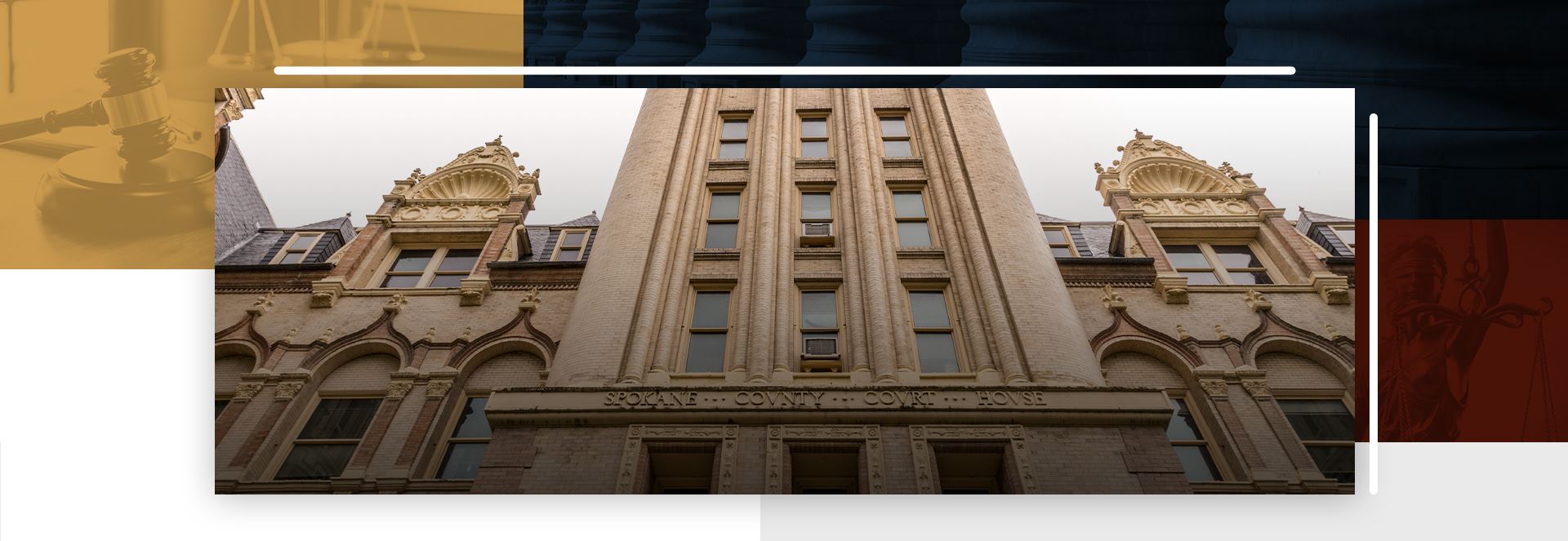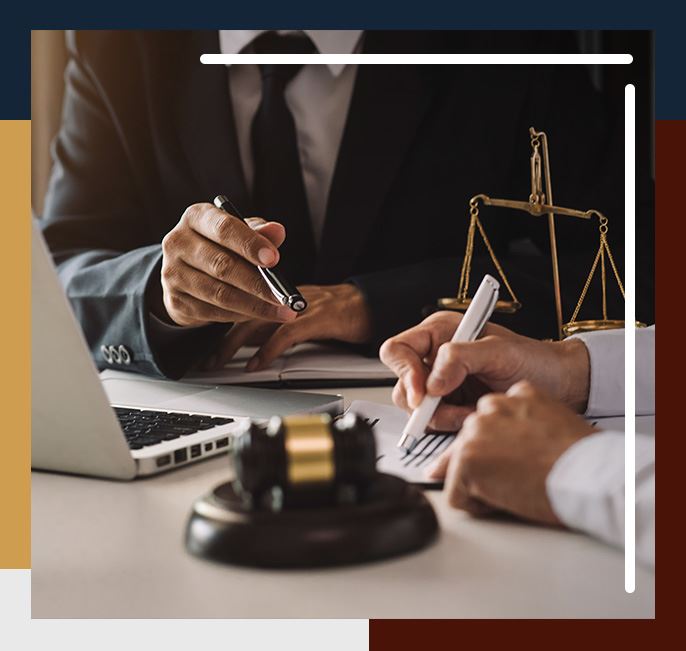
White Collar Crimes
Spokane White Collar Crime Lawyers
Defending Those Accused of White Collar Crime in Spokane
At Maxey Law Office, we understand the serious consequences that white collar crimes can have on your personal and professional life. Our goal is to protect your rights, reputation, and future. With our extensive knowledge and experience in white collar crime defense, we develop comprehensive strategies tailored to your unique situation.
Our skilled Spokane white collar crime attorneys will conduct a thorough investigation to gather evidence, analyze financial records, interview witnesses, and challenge the prosecution's case. We leave no stone unturned in building a strong defense to achieve the best possible outcome for you. Whether you are facing charges of fraud, embezzlement, insider trading, or any other white collar crime, we have the expertise and dedication to handle your case effectively.
Call (509) 652-3330 or fill out our online contact form to discuss your case and learn about your available legal options.
What is a White Collar Crime?
White collar crime refers to non-violent offenses committed by individuals or organizations in business or professional settings, typically involving deceit, fraud, or illegal financial activities. These crimes are usually carried out by individuals of higher socioeconomic status, such as professionals, executives, or government officials, and they often involve manipulation, deception, or abuse of trust for personal or financial gain.
Here are some examples of white collar crimes:
- Fraud: This includes various types of deceit or misrepresentation for personal or financial gain. Examples include securities fraud, insurance fraud, identity theft, bank fraud, and credit card fraud.
- Embezzlement: This involves the misappropriation or theft of funds entrusted to an individual by their employer or organization. Embezzlement often occurs when an employee diverts company funds for personal use.
- Insider trading: This refers to the illegal buying or selling of stocks or securities based on non-public, material information. It involves individuals using confidential information not available to the general public to gain an unfair advantage in financial markets.
- Money laundering: This involves disguising the proceeds of illegal activities as legitimate funds. Criminals often attempt to launder money by creating complex transactions or moving funds through multiple accounts to make the money's origin difficult to trace.
- Tax evasion: This refers to the illegal avoidance of paying taxes by deliberately misrepresenting income, deductions, or assets to reduce tax liability. It can involve underreporting income, inflating expenses, or hiding assets offshore.
- Bribery: This involves offering, giving, receiving, or soliciting something of value to influence the actions or decisions of an individual in a position of power. Bribery can occur in both the public and private sectors and is often aimed at securing unfair advantages or favorable treatment.
- Corporate fraud: This includes various fraudulent activities carried out by corporations or their executives, such as falsifying financial statements, engaging in accounting irregularities, or manipulating stock prices.
- Ponzi Scheme: A Ponzi scheme is a fraudulent investment operation where the operator, typically an individual or organization, pays returns to investors using funds contributed by new investors rather than generating legitimate profits. The scheme's success relies on a continuous influx of new investors to pay earlier investors, creating the illusion of high returns. However, in reality, there is no legitimate underlying investment or profit-generating activity. Ponzi schemes eventually collapse when it becomes unsustainable to attract new investors or when investors demand their funds back, leading to financial losses for participants.
- Forgery: Forgery refers to the act of creating, altering, or imitating a document, signature, or other item with the intent to deceive or defraud. It involves creating a false representation of a genuine document or creating a completely fabricated document to deceive others for personal gain. Examples of forgery include forging signatures on checks, legal documents, contracts, or financial records. The purpose of forgery is often to obtain financial benefits, property rights, or to falsely authenticate a document to deceive others into believing its legitimacy.
If you or someone you know is under investigation for a white collar crime, our Spokane white collar crime lawyers are committed to providing aggressive and effective defense strategies that protect your future and preserve your rights.
How White Collar Crimes Are Prosecuted in California?
White collar crimes are typically prosecuted under both state and federal law, depending on the nature of the offense. While some crimes are handled at the state level, others, especially those involving large-scale financial fraud or crimes that cross state lines, are prosecuted by federal agencies such as the FBI or the Securities and Exchange Commission (SEC).
Because these crimes are often complex, investigations can last months or even years. Law enforcement agencies use sophisticated tools and techniques, such as forensic accounting, wiretaps, and surveillance, to uncover evidence of criminal activity.
Penalties for White Collar Crimes in California
The penalties for a white collar crime conviction depend on various factors, including the specific offense committed, the amount of financial loss involved, whether the crime was committed by an individual or as part of a larger criminal organization, and whether the defendant has a prior criminal record.
Common penalties for white collar crimes in California include:
- Prison Time: Convictions for white collar crimes can result in long prison sentences. For example, someone convicted of embezzlement, fraud, or money laundering could face years in prison, particularly if the crime involved large amounts of money or multiple victims.
- Fines: Individuals convicted of white collar crimes may face significant fines. These fines can range from thousands to millions of dollars, depending on the severity of the crime.
- Restitution: In many cases, the court may require the defendant to pay restitution to the victims of the crime. This is meant to compensate the victims for the financial harm they suffered as a result of the defendant's actions.
- Probation: In some cases, particularly if the defendant has no prior criminal history, probation may be an option. During probation, the defendant will be subject to strict supervision and must comply with various conditions set by the court.
- Civil Lawsuits: In addition to criminal charges, individuals accused of white collar crimes may also face civil lawsuits. Victims of fraud, embezzlement, or other white collar crimes may seek compensation for damages in a separate civil court case.
Contact a Spokane White Collar Crime Attorney
White collar crimes are associated with serious penalties, which means that you need an experienced Spokane white collar crime lawyer on your side. At Maxey Law Office, we have handled numerous white collar crime cases and have a deep understanding of how the criminal justice system works.
We know how to navigate the criminal justice system, and we know how to build strong cases on behalf of our clients. If you have been accused of a white collar crime, we can help.
Contact us online today at (509) 652-3330 to schedule a consultation with our white collar crimes lawyer.

Five-Star Reviews From Happy Clients
Fighting for You With Compassion and Skill
-
“They go above and beyond for the client... extremely hard-working!!” - Katie H.
-
“I received excellent, professional advice.” - Darcy

Defenses Against White Collar Crime Charges
How Maxey Law Office Can Help
If you are facing charges related to white collar crimes in California, having an experienced white collar crime attorney in Spokane on your side is critical. Our team at Maxey Law Office has extensive experience in defending individuals against a wide range of white collar crime charges. We work diligently to protect your rights and build a strong defense strategy tailored to your specific case.
We can assist you by:
- Investigate the circumstances surrounding the charges, gather evidence, and look for any weaknesses in the prosecution’s case.
- If appropriate, we can work with the prosecution to negotiate a favorable plea deal, potentially reducing the charges or penalties.
- Develop a strategy designed to secure the best possible outcome.
- Represent you in court if your case goes to trial, presenting a compelling defense and working to achieve a favorable verdict.
Reach out to us online now at (509) 652-3330 to schedule your consultation with our experienced Spokane white collar crimes attorney.


